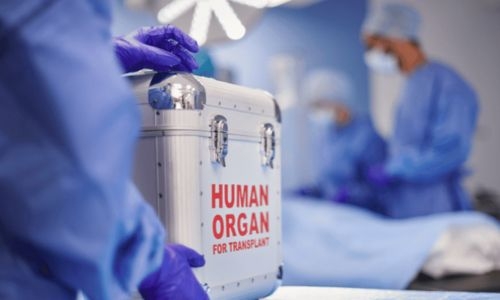Injecting ethics into new regulations tightening controls on organ transplantation
TDT | Manama
The Daily Tribune - www.newsofbahrain.com
Email: ashen@Newsofbahrain.com
New regulations have been introduced to change how organ transplantation works in Bahrain, putting strict controls in place to prevent unethical practices.
These rules prohibit the sale of organs and require clear consent processes to ensure ethical standards are followed.
Her Excellency Dr Jaleela Al Sayyed, the Minister of Health, has issued Decision No. 33 of 2024, which outlines the framework for Decree-Law No. (16) of 1998 concerning the transfer and transplantation of human organs.
The new rules state that organ transfers can only happen according to the law.
They explicitly ban any transfers that could confuse family lineage and forbid the buying or selling of organs. Donors and their families cannot receive any payment for organ transfers, and medical professionals are also prohibited from carrying out transplants if they are aware of these rules.
Prior approval
According to Article 4, organ transplants can only occur with prior approval from the relevant authority, following specific procedures set by the Minister.
The regulation specifies which health institutions are allowed to conduct these procedures, with the Minister determining the qualifications required for authorisation based on recommendations from the authority.
A public list will be available, showing which institutions are authorised to handle specific organs.
Article 7 assigns the authority the responsibility to review and inspect these institutions, ensuring they comply with health and safety standards.
The authority will have access to medical files to ensure transparency in organ transplantation practices.
Article 8 sets up a ‘Central Committee’ to oversee organ transplants in Bahrain.
Guidelines
This committee will be formed by the Minister in collaboration with the Supreme Council of Health (SCH) and will establish guidelines for organ transfers, especially in urgent situations.
The committee will focus on key issues, such as ensuring all necessary medical tests are conducted, regulating organ exchanges, confirming that transplants are essential for the recipient’s survival, and checking compatibility between donor and recipient.
Article 10 prohibits the transfer of any organ from a living person if it could cause serious harm or death, even if consent is given.
Article 11 requires that both the donor and recipient receive clear information about the procedures and risks from a specialised medical committee.
Record
This information must be shared in two separate sessions, and both parties must sign a record kept by the health institution. The regulation also addresses organ transfer after death.
Chapter Six states that any organ may only be removed after death is confirmed by a committee of at least three doctors, including a neurologist.
Finally, Article 13 allows for the transfer of organs from deceased individuals for transplantation, provided the Central Committee approves it, and the deceased did not object during their lifetime or their relatives have given consent afterward.
Article 15 permits the electronic organisation of organ donation agreements, as long as they are witnessed by two qualified individuals.
Related Posts

